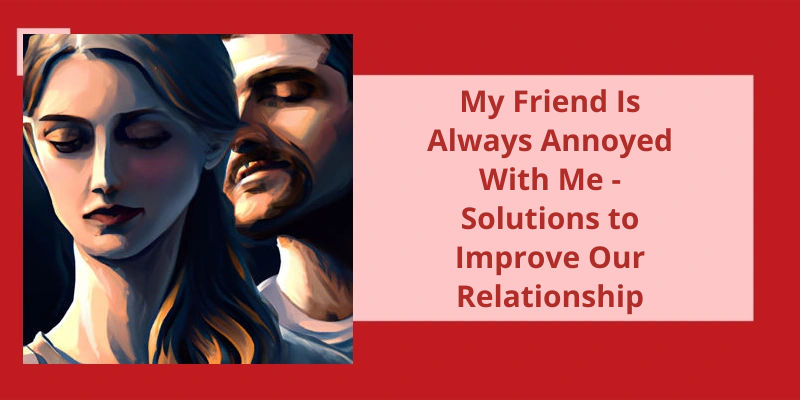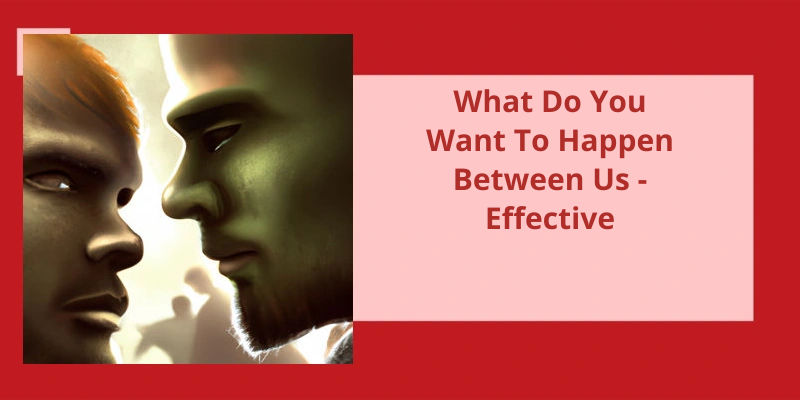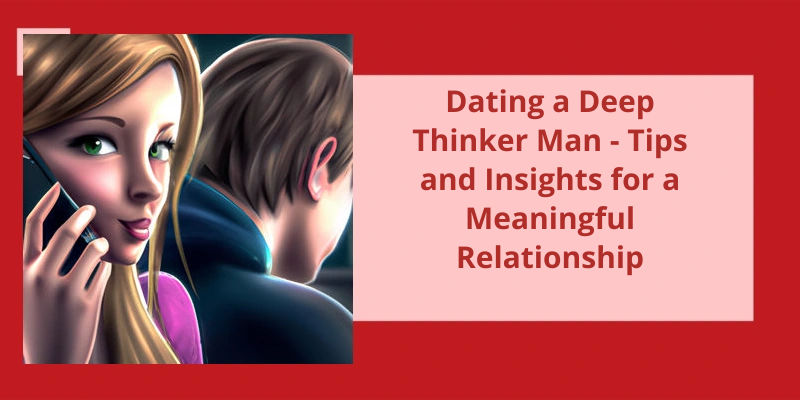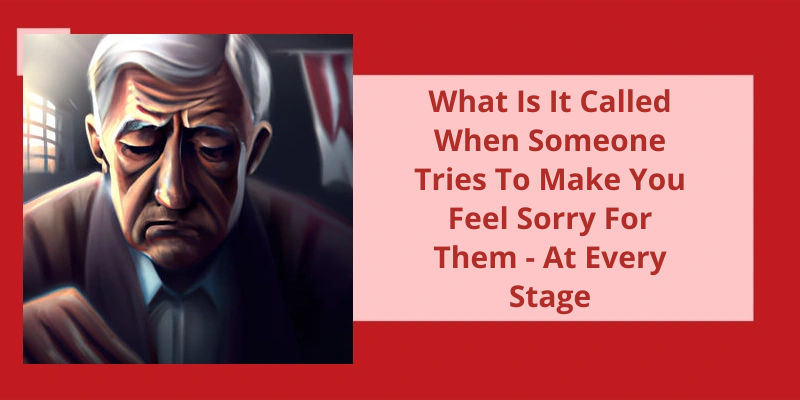It’s a common experience to feel disconnected from a friend at some point in a relationship. Despite best intentions, misunderstandings and differing perspectives can lead to tension and discomfort between even the closest of companions. However, what happens when one friend is perpetually annoyed with the other? When this occurs, it can be especially difficult to determine the source of the discomfort and find ways to improve the relationship. In such situations, it's crucial to explore the issue with sensitivity and empathy in order to rekindle the bond and alleviate the persistent irritation that can hinder the connection between two people.
How Do You Tell if Your Best Friend Is Annoyed With You?
Maintaining friendships requires emotional investment and time. However, sometimes a rift can occur, and it can be tough to know if your best friend is annoyed with you. One way to tell is by observing the silence on their end. If your best friend is typically responsive, but has been uncharacteristically quiet, it could be a sign that they’re upset with you.
If they’re typically verbose but are giving you one-worded responses, it may be a sign that they don’t want to talk to you right now.
This may suggest that you’ve overstepped a boundary or touched upon a sensitive topic.
It’s important to be proactive in resolving issues with your best friend. If you notice your friend is exhibiting any of these behaviors, it’s crucial to address them and communicate effectively. If youre unsure why your friend is behaving a particular way, it’s always a good idea to ask them directly and give them space and time to express themselves. Remember, maintaining a long-lasting friendship requires communication, patience, and understanding.
While it can be challenging to navigate a friendship with someone who struggles with anger issues, it’s important to approach the situation with compassion and support. By letting your friend know that you prioritize the friendship and are willing to help her develop skills that can better control her anger, you can potentially make a positive impact on her life. Seeking help from a mental health professional with expertise in anger management is also a beneficial step towards long-term change. With dedication and effort, your friend can develop important skills to successfully manage her anger.
When Your Best Friend Has Anger Issues?
When your closest companion has anger issues, it can be a difficult situation to navigate. You may find yourself feeling frustrated, worried, and unsure of how to support them without exacerbating their anger. However, it’s important to remember that anger issues are often a symptom of underlying emotional or psychological concerns. Therefore, the first step in helping your friend is to show them empathy and understanding, while also encouraging them to seek professional help.
One way to approach this conversation is to start by acknowledging the importance of your friendship and how much it means to you. Let them know that you’re there to support them and that you’re willing to help them develop the skills they need to better control their anger. This sets the tone for a compassionate, non-judgmental conversation that can help them feel heard and understood.
Once you establish this foundation of trust and support, you can begin to explore the root causes of their anger. Offer to help them identify their triggers and work with them to develop coping strategies that they can use when they start to feel overwhelmed or frustrated. This may involve practicing mindfulness, deep breathing, or other relaxation techniques.
Source: How do I deal with a friend who’s anger issues?..
It can be difficult to know how to respond to a friend who’s feeling annoyed or upset. However, it’s important to validate their emotions and let them know that their feelings are understandable. By doing so, you’re showing them that you care and empathize with their situation.
What Do You Say to a Friend Who Is Annoyed?
It’s important to let your friend express their emotions and not dismiss them or make light of their situation. Acknowledge their frustration and let them know that youre there for them. This can help them feel heard and understood.
Another way to support a friend who’s annoyed is to offer practical help. If the cause of their irritation is something that you can help solve, offer to lend a hand. Even if you cant directly fix the issue, brainstorm together about potential solutions.
It’s also important to stay calm and non-judgmental when talking to a frustrated friend. Avoid getting defensive or dismissive, as this can make the situation worse. Instead, try to listen actively and respond in a supportive manner.
Additionally, try to avoid minimizing your friends feelings or suggesting that they should just “get over it.”. Everyone experiences emotions differently, and it may take time for your friend to process their feelings. Be patient and offer support in whatever way you can.
Finally, remind your friend that you care about them and value their relationship. Let them know that youre there to offer support and that youll do whatever you can to help them through this difficult time. Sometimes just having someone to lean on can make a big difference.
Maintaining close friendships is crucial for our emotional well-being, but conflicts may arise, pushing even the closest of friends away from each other. If your best friend is annoyed at you, you may feel hurt and lost, but the good news is that there are things you can do to mend your friendship. Keep reading to discover five tips on what to do when your best friend is mad at you and how to say the right things to mend your friendship.
What to Do if Your Best Friend Is Annoyed at You?
Friendship is a special bond that we share with those we hold dear to our hearts. However, sometimes things can go wrong, and we may find ourselves in a position where our best friend is annoyed or mad at us. This can be a troubling experience, particularly if the friendship means a lot to us. In such situations, it’s important to take immediate action to try and mend things. Here are a few tips on what to do if your best friend is annoyed with you.
First, the most critical step is to talk it out with your friend. It’s important to listen to your friend without getting defensive and try to understand their point of view. Allow them to express themselves and don’t interrupt or try to justify your actions until they’ve finished. This will show your friend that you genuinely care about the friendship and want to make things right.
When talking it out, it’s important to avoid getting defensive. Avoid making excuses or blaming others, which can fuel the fire and make the situation worse. Instead, take responsibility for your actions and apologize for any mistakes you may have made. This can go a long way in easing tensions and showing your friend that you’re willing to put in the effort to mend the friendship.
This shows that you’re willing to put in the effort to fix things and that you value the friendship. It’s important to be open to suggestions and not dismiss them outright.
Admitting that you’re wrong can also be an effective way to mend a friendship. Sometimes our egos get in the way, and we find it difficult to accept that we were at fault. However, acknowledging that you made a mistake and taking steps to rectify it can help to rebuild trust and strengthen the friendship.
Finally, give it time. Mending a friendship takes time, and it’s important to be patient. It’s also important to recognize that the friendship may never be the same as it was before. However, by taking the necessary steps to mend the friendship, you can ensure that it’s still a positive and meaningful relationship.
Talk it out, don’t get defensive, ask what you can do, admit youre wrong, and give it time. With patience, effort, and open communication, it’s possible to mend most friendships.
Recognizing the Signs of an Annoyed Friend Before Things Escalate.
- Continuous complaints and negative comments
- Excessive sighing or eye-rolling
- Avoidance of conversations or physical contact
- Increased sarcasm or passive-aggressive behavior
- Short, sharp responses to questions or statements
- Body language such as crossed arms or tense posture
- Talking over or interrupting others
- Repetitive behaviors like tapping or fidgeting
- Unwillingness to compromise or find solutions
- Increased irritability or agitation
Maintaining healthy relationships with our friends is imperative for a fulfilling life, and sometimes misunderstandings can strain even the closest of friendships. If your friend is upset with you and ignoring you, it can be a distressing and confusing experience. However, there are constructive ways to handle the situation and hopefully resolve the issue. Here are 12 tips for what to do when your friend is annoyed with you.
What to Do if Your Friend Is Annoyed With You?
It’s never easy when youre in a situation where youve upset your friend and theyre mad at you. The feeling of being ignored or not knowing how to make things right can be incredibly frustrating and upsetting. However, there are things you can do to try and resolve the situation if you find yourself in this position.
Firstly, it’s important to give your friend space and time to cool off. Sometimes emotions can run high, and it’s essential for both parties to take a step back and get some perspective on the situation. This also shows that you understand your friends need for distance and respect their space.
Secondly, you should check your assumptions about why your friend is annoyed with you. Sometimes our imaginations can get the better of us, leading to unfounded concerns and misunderstandings. By asking your friend directly, you can clear up any miscommunications, and begin to work towards a resolution.
Thirdly, putting the ball in their court is a useful way of showing your friend that youre willing to work things out. This means asking them what they think would be the best way to move forward and involve them in the decision-making process.
Next, it’s essential to self-reflect on what happened and take responsibility for your actions. It’s easy to become defensive when faced with criticism, but it’s important to acknowledge any mistakes you may have made and apologize sincerely.
Putting things into perspective can also help you gain some clarity. Consider the bigger picture and whether the disagreement is worth losing a friendship over. It can be helpful to think about the things that you appreciate about your friend and why the relationship is valuable to both of you.
Avoiding engaging with unproductive thoughts and resisting emotional reactions will minimize the likelihood of further conflict. It’s important to remain calm and clear-headed while trying to navigate the situation.
Finally, if possible, ask to speak to your friend in person. Texts, calls, and emails can be easily misconstrued, and a face-to-face discussion can help to clear the air and form a deeper understanding. It also shows that youre willing to put in the effort to maintain your friendship.
It’s not always easy to deal with a friend whos mad at you, but with patience, understanding, and an open mind, you can work towards a resolution that will hopefully strengthen your friendship. Remember, communication is key, and it’s always better to address issues head-on rather than sweep them under the rug.
How to Handle Situations Where Both You and Your Friend Have Contributed to the Problem
- Take responsibility for your part in the problem.
- Listen actively to your friend and try to understand their perspective.
- Find common ground and work together to find a solution.
- Apologize sincerely for any harm caused.
- Learn from the experience and make adjustments for the future.
Conclusion
In conclusion, having a friend who’s always annoyed with you can be a trying and difficult experience. It can make you feel self-conscious, doubt yourself, and question whether or not you’re a good friend. However, it's important to remember that friendships are a two-way street, and communication is key. Take the time to talk to your friend about how their behavior is affecting you, and try to work together to find a solution that works for both of you. It may take time and effort, but the end result will be a healthier, stronger, and more fulfilling friendship. With patience, empathy, and an open mind, you can overcome this challenge and continue to cultivate a meaningful relationship with your friend.






